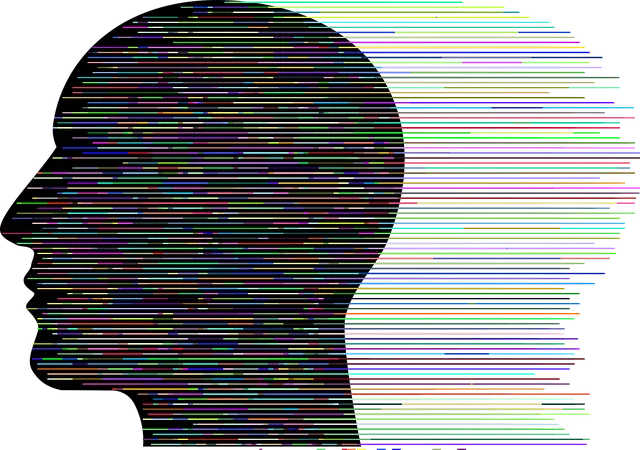The Boulder Kaiser Permanente mental health center offers comprehensive anxiety management through personalized approaches. By identifying triggers, understanding symptoms (physical, cognitive, behavioral), and employing techniques like CBT and mindfulness meditation, individuals gain control over their anxiety. CBT targets negative thought patterns, while mindfulness practices promote present-moment awareness, improving resilience and overall well-being. The center's tailored strategies empower patients to navigate life's challenges with composure.
At the Boulder Kaiser Permanente mental health center, we recognize that anxiety is a common yet manageable condition. This article equips you with effective strategies to navigate and overcome anxiety. We begin by unraveling the complexities of anxiety, helping you identify triggers and symptoms. Next, we delve into Cognitive Behavioral Therapy (CBT), a game-changer in anxiety management. Additionally, discover mindfulness and relaxation techniques to cultivate inner calm and enhance your overall well-being.
- Understanding Anxiety: Identifying Triggers and Symptoms
- Cognitive Behavioral Therapy: A Powerful Tool for Overcoming Anxiety
- Mindfulness and Relaxation Techniques to Calm the Mind and Body
Understanding Anxiety: Identifying Triggers and Symptoms

Anxiety is a natural response to stress, but when it becomes overwhelming and persistent, it can significantly impact daily life. The first step in managing anxiety effectively is understanding its causes and symptoms. At Boulder Kaiser Permanente mental health center, professionals emphasize the importance of identifying personal triggers that set off anxiety episodes. These triggers can vary greatly from person to person and may include specific situations, environments, or even thoughts and memories. Recognizing these triggers is crucial for developing personalized coping strategies.
Symptoms of anxiety manifest physically, cognitively, and behaviorally. Common physical signs include a racing heart, rapid breathing, sweating, dizziness, and muscle tension. Cognitive symptoms involve persistent worries, negative thinking patterns, and difficulty concentrating. Behavioral changes may include avoidance of situations that trigger anxiety, restlessness, or irritability. By learning to recognize these symptoms, individuals can take proactive steps towards managing their anxiety more effectively through techniques like mindfulness meditation and coping skills development, as promoted by the center’s mental health professionals.
Cognitive Behavioral Therapy: A Powerful Tool for Overcoming Anxiety

Cognitive Behavioral Therapy (CBT) is a highly effective approach to managing anxiety, and it’s offered by many centers, including the Boulder Kaiser Permanente mental health center. CBT focuses on identifying and changing negative thought patterns and behaviors that contribute to anxiety disorders. By challenging these distorted thoughts, individuals can learn to manage their anxiety symptoms more effectively. This therapy is based on the understanding that our thoughts, feelings, and actions are interconnected, and by modifying unhealthy thinking habits, one can achieve significant anxiety relief.
This technique empowers patients with emotional intelligence, enabling them to recognize unhelpful cognitive processes and replace them with healthier alternatives. It’s a structured process that involves setting specific goals and learning new coping strategies tailored to their unique needs. CBT has been proven particularly effective for various anxiety disorders, offering long-lasting benefits even after the initial treatment period, which can be crucial in preventing burnout and promoting overall well-being.
Mindfulness and Relaxation Techniques to Calm the Mind and Body

At the Boulder Kaiser Permanente mental health center, professionals emphasize the power of mindfulness and relaxation techniques as essential tools for anxiety management. These practices, such as deep breathing exercises and meditation, help individuals cultivate present-moment awareness, enabling them to disengage from anxious thoughts and reduce stress responses. By focusing on the body’s physical sensations and calming the mind, these techniques foster a sense of tranquility and emotional balance.
Incorporating mindfulness into daily routines can significantly contribute to self-esteem improvement and mental wellness. The center recommends dedicated practice times, even as short as 5 minutes a day, to engage in relaxation exercises. These practices not only promote emotional well-being promotion techniques but also enhance overall resilience against anxiety episodes. Through regular utilization of these strategies, individuals can navigate life’s challenges with greater composure and self-assurance.
Anxiety management is a journey that can transform your life, and the resources available at Boulder Kaiser Permanente mental health center are here to guide you. By understanding your anxiety triggers and symptoms, combining evidence-based therapies like Cognitive Behavioral Therapy with mindfulness practices, and adopting relaxation techniques, you can take control and lead a fulfilling life free from anxiety’s grasp. Remember, seeking help is a sign of strength, and with the right support, managing anxiety is achievable.






